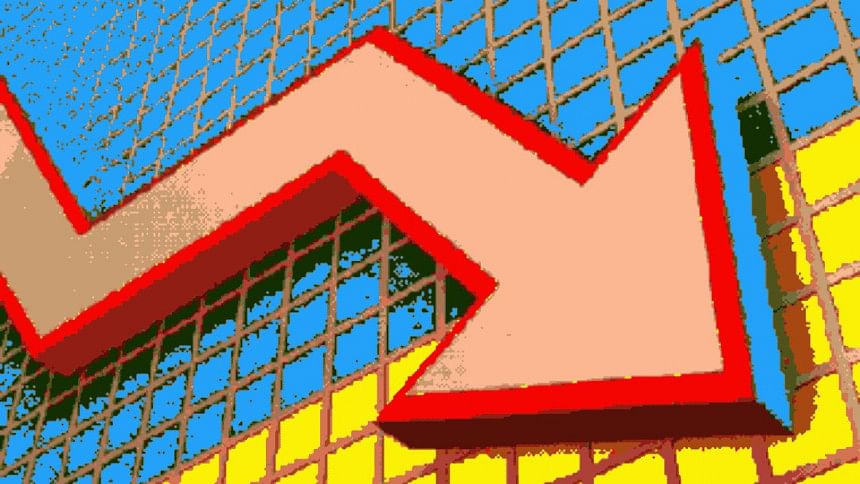Ukraine's many dilemmas

WHILE the proxy war rages between Russia and "little Russia," the bigger question for Ukraine is to avoid economic collapse. Without a stable economy, it cannot defend itself against external circumstances. And for that to happen, Kiev will have to start taking some hard decisions on its economy. The recent ceasefire has brought Ukraine some time on the war effort. What is of greater import is the financial bailout announced by the International Monetary Fund (IMF). For meaningful transformation of Ukraine's "crony capitalism" into one that actually functions, much needed reforms will have to be put into effect. A financial meltdown of that country's economy will certainly spell doom for national security in the long run.
Given Ukrainian estimates that the war is bleeding the economy to the estimate of $8 million per day and severe downturn in the country's industrial output to the tune of about 17% in the last fiscal, Ukraine is in danger of "running out of money." While the left may decry IMF's meddling in the internal affairs of Ukraine, the 2014 $40 billion package comes with strings attached and Kiev has no choice but to reform. The "package" consists of loans from the West, i.e. the United States (US) and European Union (EU) are major contributors. Tackling Ukraine's debt will be the first major challenge. With the West taking a softer stand on "stringent" IMF conditionalities, given the situation on the ground, Kiev may be able to negotiate better deals with foreign financial institutions on loans. But the Russia-Ukraine $15 billion loan promised to former President Victor Yanukovych is no longer on the cards, and with Ukraine still owing Russia $3 billion in sovereign debt, it will be interesting how the restructuring debt programme plays out for Kiev.
Ukraine has more pressing problems in certain key areas of its economy. One is the "energy" sector. It is home to rampant corruption. Beyond endemic graft that rules the sector, Kiev's policies on energy till date meant low prices. Like Bangladeshis, Ukrainians have come to expect low retail prices for the precious commodity. Like us, Ukrainians have taken for granted that they will never have to pay the full cost of the energy they consume. The massive subsidies that have gone to keep this utopia alive have proved a major drain on the national exchequer. Moreover, policymakers have never had the political will to go after the oligarchs who rule this precious sector profiting immensely from buying cheap domestic Ukrainian gas and selling it in the international market reaping windfall profits -- profits that lace individual pockets and not the national exchequer. In line with the IMF bailout, certain changes have begun to take effect. Bad news for the oligarchs, good news for Ukraine since prices are being revised upward. True, the painful pill of reform will hit poorer Ukrainians already suffering from a myriad of economic woes, but this needs to be done for the good of the many in the long run.
In terms of governance, Ukraine never really got around to shaking off the bad practices of the now defunct Soviet Union. The terrible state of both health and education is a major point of contention for the vast majority of its citizens. Apparently, good "treatment" is only available to those willing to cough up "speed money." Without better health and education, the Ukrainian labour force will remain less productive. Reforms are needed for a healthier workforce for the economy as a whole. The government's reputation on business regulation is no better. The country secured 96th position on World Bank's doing business survey recently. As stated before, Ukraine's crony capitalism is a serious impediment to growth. Fighting corruption is easier said than done. The culture of bribes is so deep rooted that some fear that attempted reforms will get stuck in the mud as it would affect too many interest groups. The big question is whether policymakers in Kiev will let the anti-corruption watchdog body function freely. The same goes for the courts going after the high-and-mighty and whether policymakers have the stomach to take criticism from a free press on questions of corruption.
Needless to say, any anti-corruption drive will bring the State into direct conflict with the "oligarchs" -- a hangover from post Soviet times, a permanent facet of the Yeltsin era; powerful entities who literally carved out huge chunks of Russia's economy to their own benefit. A similar scenario exists in Ukraine. These dark barons control every aspect of the economy. They control politics and the media; remain at the helm of things with massive financial clout and international connections and backing. Tackling them will be no easy task, for they bankroll the political process to a great extent. For any meaningful reform to bring about a change in the economy will mean taking on these powerful interests. Whether that political exists in the current circumstances is open to debate. But can Kiev choose to ignore making changes? Can it afford to sit idle on years of economic mismanagement that bleeds the economy dry? With the hounds of war on its doorstep baying for blood, tough decisions have to be made by Ukraine, and they have to taken today, not tomorrow.
The writer is Assistant Editor, The Daily Star.

 For all latest news, follow The Daily Star's Google News channel.
For all latest news, follow The Daily Star's Google News channel. 



Comments